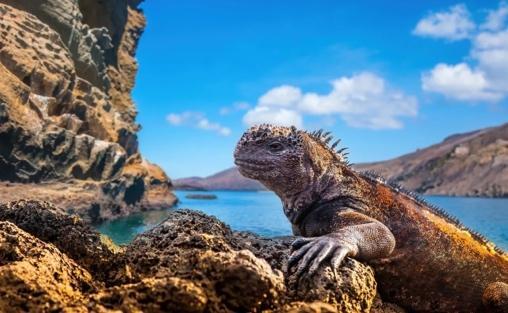Last Updated on: 22nd November 2023, 10:52 am
A survey conducted by World Animal Protection has revealed that an overwhelming majority (86%) of British children aged 8-16, encompassing both Gen Alpha and Gen Z, would rather observe dolphins in their natural habitat than at a captive venue. This starkly contrasts with the 50% of parents surveyed who stated they took their children to a dolphin attraction because they would enjoy it.
When asked what they believed to be cruel about these attractions, 65% of children said dolphins belong in the sea and 49% said the tanks are too small. Only 13% of the young respondents did not think that dolphin attractions were cruel. On the contrary, when asked what, if anything, they thought was good about the venues, only 27% stated the dolphins enjoy it and 32% view them as educational.
Many of the children expressed their concerns regarding the shows, with comments such as “Dolphins are too smart to be in cages and have to do silly things”, “It is cruel, where is the family?”, and “They should be with their friends”.
The research, which surveyed a nationally representative sample of 1522 children and 2000 adults, also found that just 34% of adults consider dolphin attractions acceptable and 62% are aware of the negative impacts they cause to dolphins. Over half (56%) of the adults said they would have changed their mind about visiting a dolphin attraction had they known more about the impact before going, and 37% feel embarrassed to tell others they have visited one in the past.
In response to the survey, Lord Black of Brentwood, taking the Animals (Low Welfare Activities Abroad) Bill through the House of Lords, commented: “Dolphins used for entertainment endure miserable lives and their suffering must stop. These highly intelligent creatures can be deprived of food to train them, and they are kept in confined, featureless tanks that are 200,000 times smaller than their natural home range. A five-minute holiday thrill swimming with dolphins or watching a show condemns them to a lifetime of suffering. This polling shows that young people do not support animal exploitation. We must listen to them and stop travel companies profiting from their suffering. The government must ban the domestic sales and advertisement of dolphin entertainment abroad.”
The survey also revealed that over half (55%) of adults would support a ban on the UK sale and promotion of dolphin attractions abroad, and 60% believe the travel industry should take a stand against promoting captive dolphin shows. Furthermore, 57% are more likely to support a travel company that actively promotes animal friendly attractions.
Katheryn Wise, World Animal Protection’s Wildlife Campaign Manager, stated: “We hear time and again that parents take their children to dolphin attractions to create memories, but as younger generations become increasingly aware of the cruelty associated with captive wildlife attractions these are more likely to become regrets. Children know inherently what is fair and unfair and it seems that they instinctively know that keeping an intelligent, wild animal in a tiny pool is unfair. It is up to us as a society to nurture this instinct and foster respect and compassion for wildlife rather than exploit it.”
This week (5th September, 2023), the Animals (Low Welfare Activities Abroad) Bill will go through committee stage in the House of Lords. The Bill aims to prohibit the domestic sale and advertising of low welfare animal activities abroad, in the hope that captive dolphin venues will be included on the list of prohibited activities.
World Animal Protection’s campaign calling on TUI Group to end the sale and promotion of cruel captive dolphin venues has already received 100,000 petition signatures, with TUI customers and employees reporting they are angry and disappointed that the travel giant continues to profit from this cruelty.
Notes to Editors:
To arrange an interview or for further information, please contact pressofficer@worldanimalprotection.org.uk. The research was conducted by Censuswide, among a sample of 2000 Nationally representative UK respondents. The data was collected between 14.08.2023 – 17.08.2023. Censuswide abides by and employs members of the Market Research Society and follows the MRS code of conduct which is based on the ESOMAR principles. Images and footage of captive dolphin venues are available.
A survey conducted by World Animal Protection has revealed that an overwhelming majority (86%) of British children aged 8-16 are in favour of observing dolphins in their natural habitat, as opposed to a captive venue. This is in stark contrast to the 50% of parents surveyed who stated they took their children to a dolphin attraction because they would enjoy it.
When asked what they believed to be cruel about these attractions, 65% of children said dolphins belong in the sea and 49% said the tanks are too small. On the contrary, only 27% of respondents stated the dolphins enjoy it and 32% view them as educational.
The survey, which surveyed



